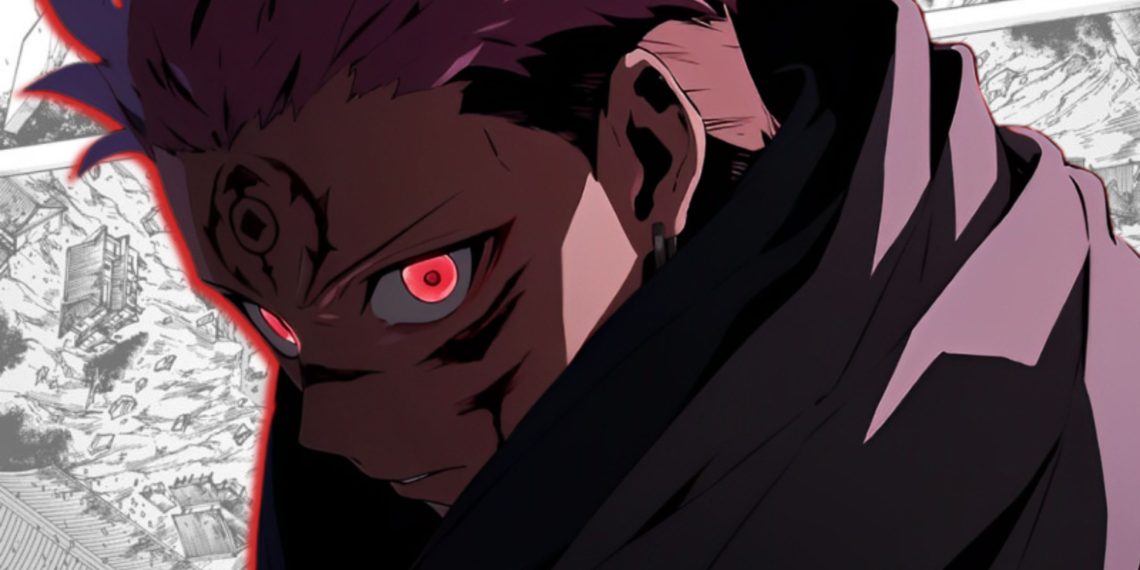In the ever-evolving narrative of Jujutsu Kaisen, chapter 268 marked a pivotal moment as the long-awaited battle between the sorcerers and Sukuna reached its dramatic ending.
The chapter was nothing short of a spectacle, as fans witnessed the end of Sukuna, one of the series’ most formidable and mysterious antagonists, at the hands of Yuji Itadori.
This climax, which also saw the recovery of Megumi Fushiguro, has been a significant talking point among the fanbase.
However, while many celebrated this turning point, others have expressed a sense of disappointment and dissatisfaction, particularly concerning the narrative arc and the character development of Sukuna.
One of the most prominent criticisms revolves around the unexplored aspects of Sukuna’s backstory, especially those hinted at during the Culling Games arc.
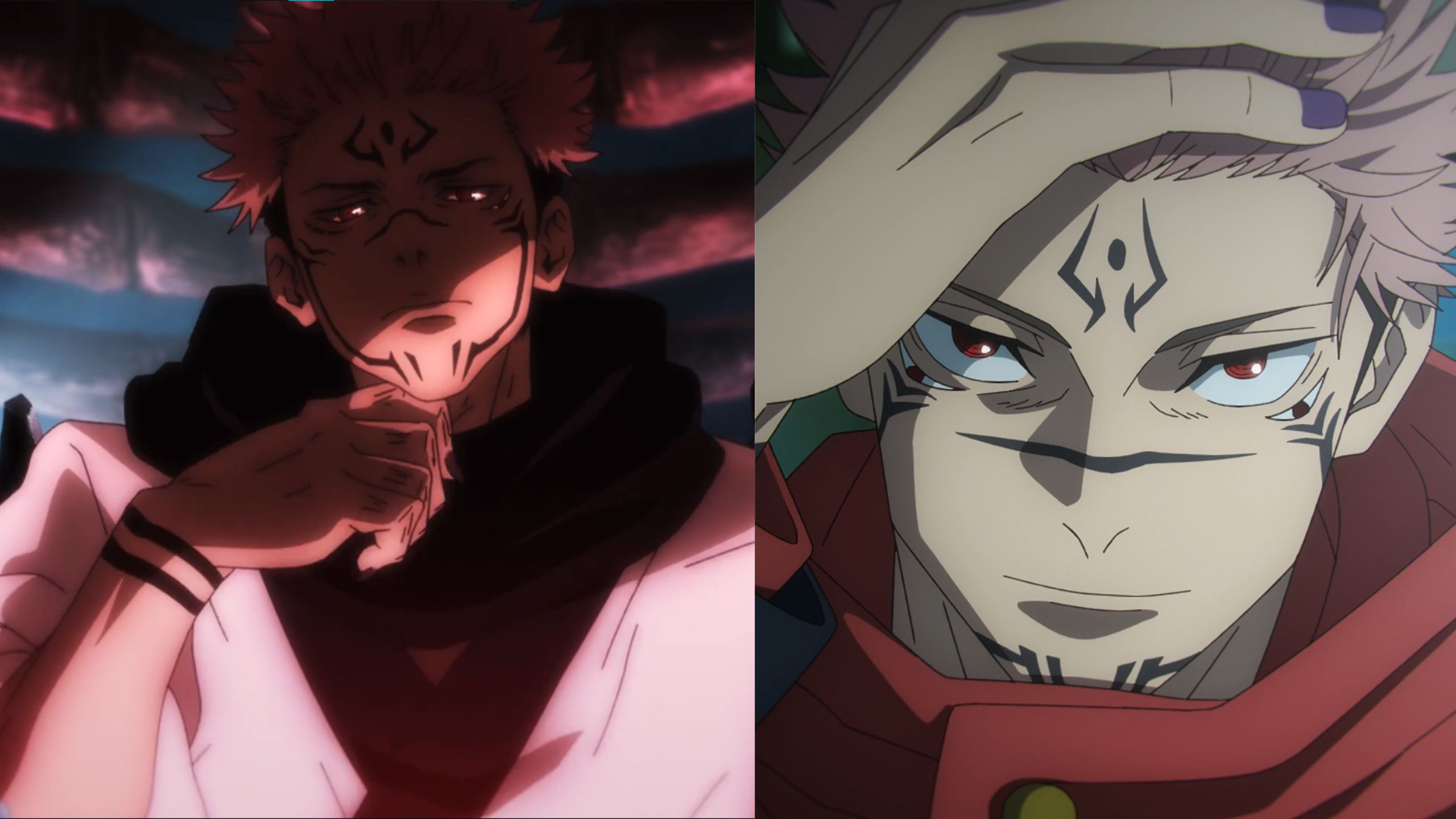
This arc, which teased the possibility of entering into Sukuna’s Heian Era history and his connection to Angel, left fans with more questions than answers.
The anticipation built around these plot points was palpable, yet the resolution, or lack thereof, in chapter 268 has left many feeling that the narrative potential was not fully realized.
This has led to a growing belief among fans that Gege Akutami, the creator of Jujutsu Kaisen, may have either forgotten or intentionally overlooked these critical elements of the story.
Unfulfilled Promise of Sukuna’s Heian Era Storyline
From the very beginning of Jujutsu Kaisen, Sukuna has been shrouded in mystery.
His character, known as the King of Curses, was not just a formidable adversary but also a figure deeply rooted in the ancient history of the Jujutsu world.
The Heian Era, often referred to as the “Golden Age of Jujutsu,” was frequently mentioned in connection with Sukuna, Tengen, Kenjaku, and several other key figures in the story.
These references led fans to believe that a significant portion of Sukuna’s backstory, particularly his “subjugation” at the end of the Heian Era, would eventually be explored in the manga.
"The Strongest"
"The Disgraced one"
"King of Curses"Ryomen Sukuna #jjk268 pic.twitter.com/bh30EmHSHI
— Capitano fan (@merfolk6969) September 1, 2024
The consistent allusions to the Heian Era suggested that Gege Akutami was laying the groundwork for a flashback arc, a narrative device commonly used in manga to provide depth and context to a character’s motivations and history.
In Sukuna’s case, such a flashback would have offered invaluable insights into his rise to power, his eventual defeat, and the factors that shaped his malevolent personality.
Furthermore, it would have shed light on his relationship with other pivotal characters from that era, such as Angel, who played a crucial role in the storyline.
Angel, one of the sorcerers who directly confronted Sukuna during the Heian Era, was introduced with much fanfare and intrigue.
Her character was portrayed as someone with a deep connection to Sukuna, and her cursed technique, which manifested as a pillar of light capable of negating all cursed energy, was a fascinating addition to the series.
The Abrahamic imagery associated with Angel, combined with her role in unsealing Satoru Gojo, added layers of complexity to her character.
Fans speculated that her history with Sukuna would be a key element in unraveling the mysteries of the Heian Era and understanding Sukuna’s true nature.
However, as the story progressed, the anticipated exploration of Sukuna’s past and his relationship with Angel did not materialize.
Instead, the narrative shifted focus, with the Culling Games arc emphasizing action and immediate plot developments over the deeper historical context.
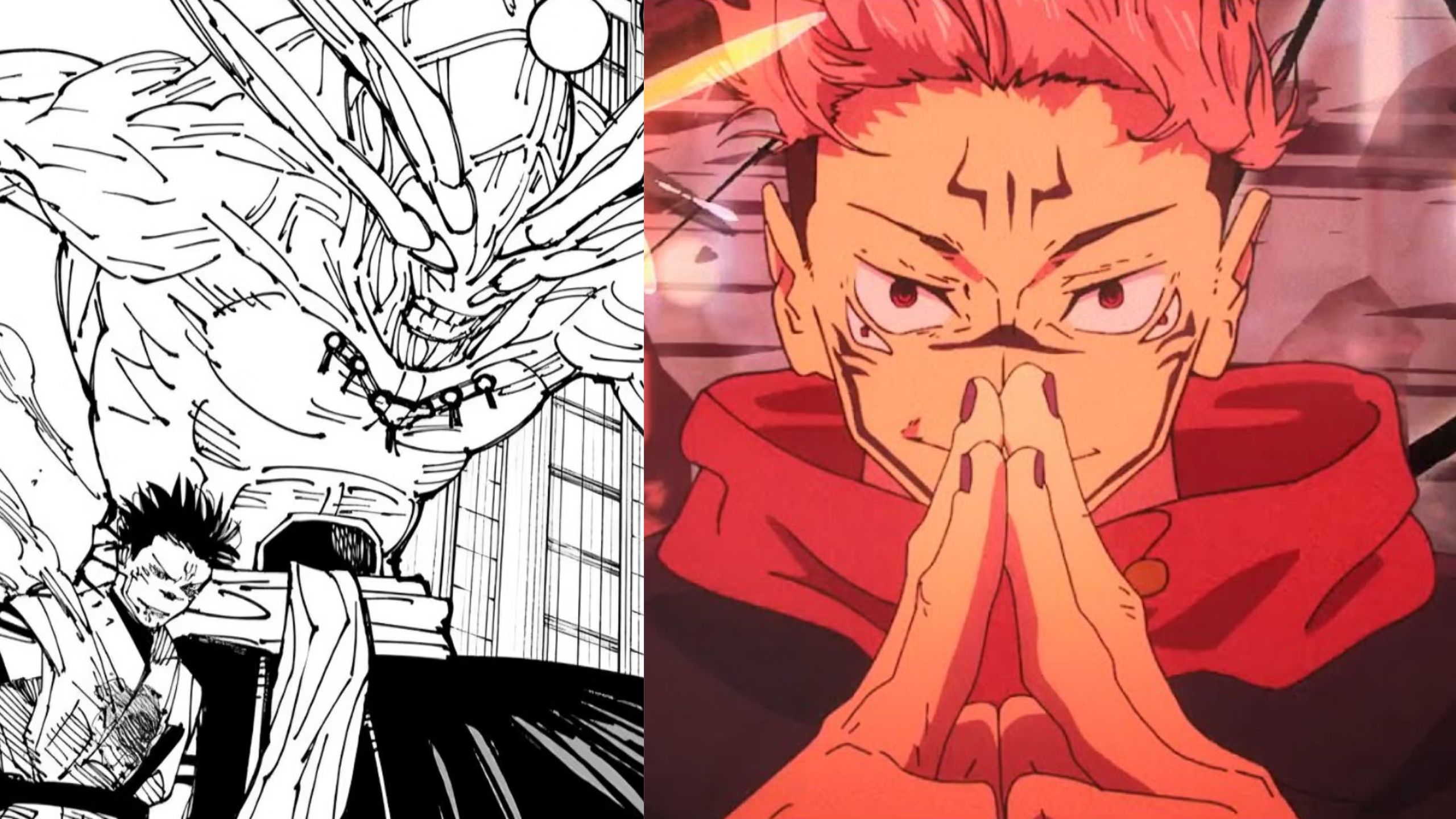
While this approach maintained the series’ momentum and kept readers engaged, it also left a significant portion of the fanbase yearning for the untold story of the Heian Era.
The absence of this storyline has led many to question whether Gege Akutami had intentionally abandoned this plot thread or if it was simply deferred for future exploration.
Implications of a Forgotten Plotline
The disappointment among fans regarding Sukuna’s backstory is not merely about the lack of information but also about the implications it has for the final narrative of Jujutsu Kaisen.
The series has been praised for its intricate world-building and complex character relationships, with each arc adding layers to the overarching story.
The Heian Era, as a significant historical period in the Jujutsu world, was expected to play a crucial role in this narrative structure.
By not entering into this era, particularly in relation to Sukuna, the series risks leaving a substantial gap in its lore.
The potential for a Heian Era flashback or mini-arc was particularly strong given the presence of other sorcerers from that time, such as Uro and Ryu.
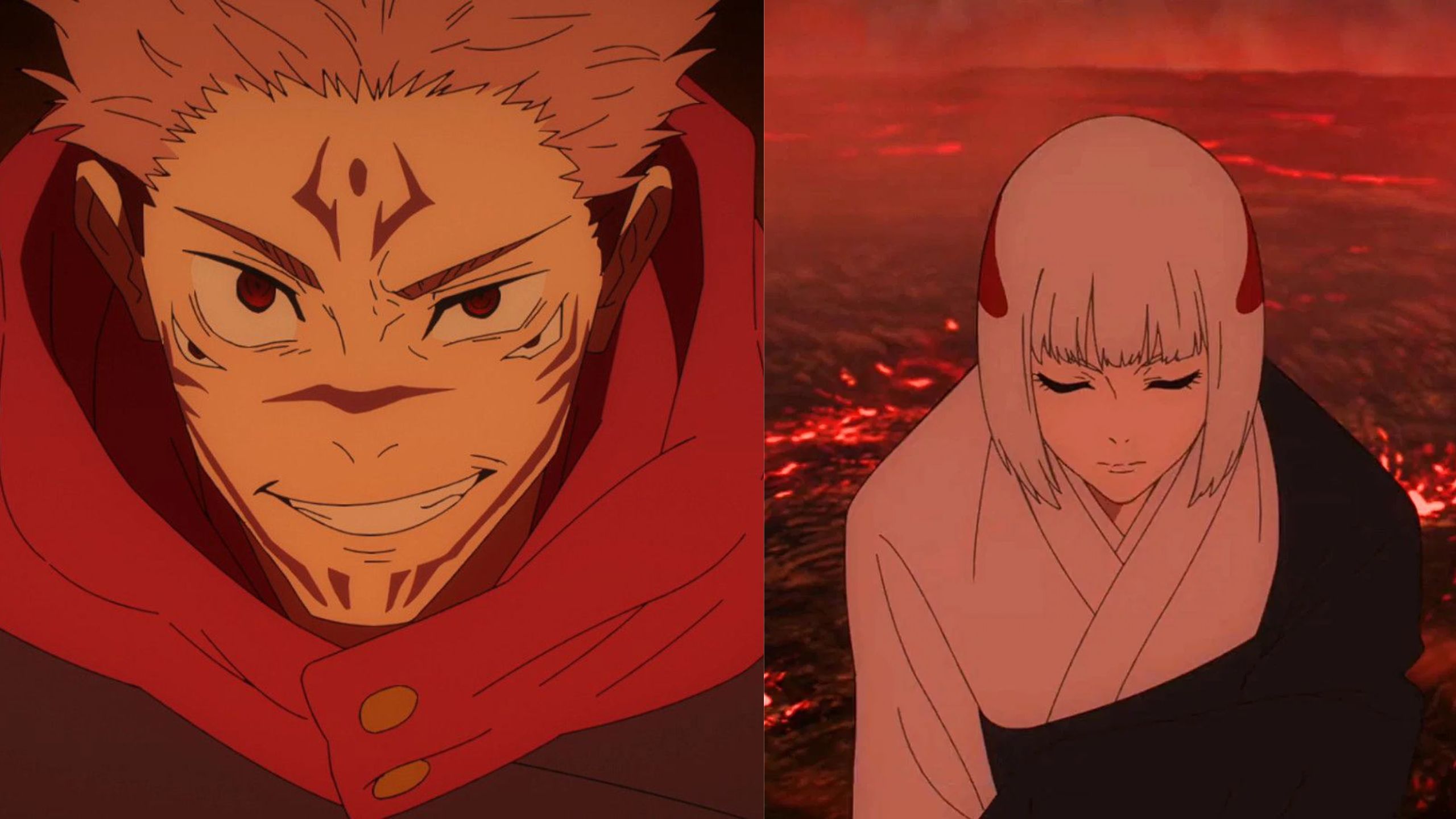
These characters, along with Angel, were introduced with distinct abilities and backstories that hinted at a larger narrative involving the power struggles and conflicts of the Heian Era.
The fact that these characters were brought into the present-day storyline through contracts with Kenjaku further suggested that their pasts were intricately linked to the main plot.
Yet, with Sukuna’s defeat in chapter 268, it seems that this rich historical backdrop may never be fully explored.
Some fans have speculated that Gege Akutami may have intentionally left these plot points unresolved, perhaps to be addressed in a future spin-off or sequel.
Given the popularity of Jujutsu Kaisen and the depth of its world, it is not unreasonable to consider the possibility of a continuation that go into the untold stories of the Heian Era.
A spin-off focusing on this period could provide the detailed exploration that fans are craving, offering a deeper understanding of Sukuna’s character and the events that shaped the current Jujutsu world.
Jujutsu Kaisen’s Narrative Focus
It is important to recognize that while the lack of exploration of Sukuna’s backstory is a valid criticism, it does not necessarily indicate a decline in the final quality of Jujutsu Kaisen’s storytelling.
Since the Culling Games arc, the series has shifted its focus towards more action-oriented sequences and immediate plot developments.
This approach has kept the story engaging and fast-paced, catering to a broad audience that enjoys the adrenaline-fueled battles and high-stakes confrontations that have become a hallmark of the series.
However, this shift in focus has also meant that some of the more intricate plot threads, such as the Heian Era flashback, have been sidelined.
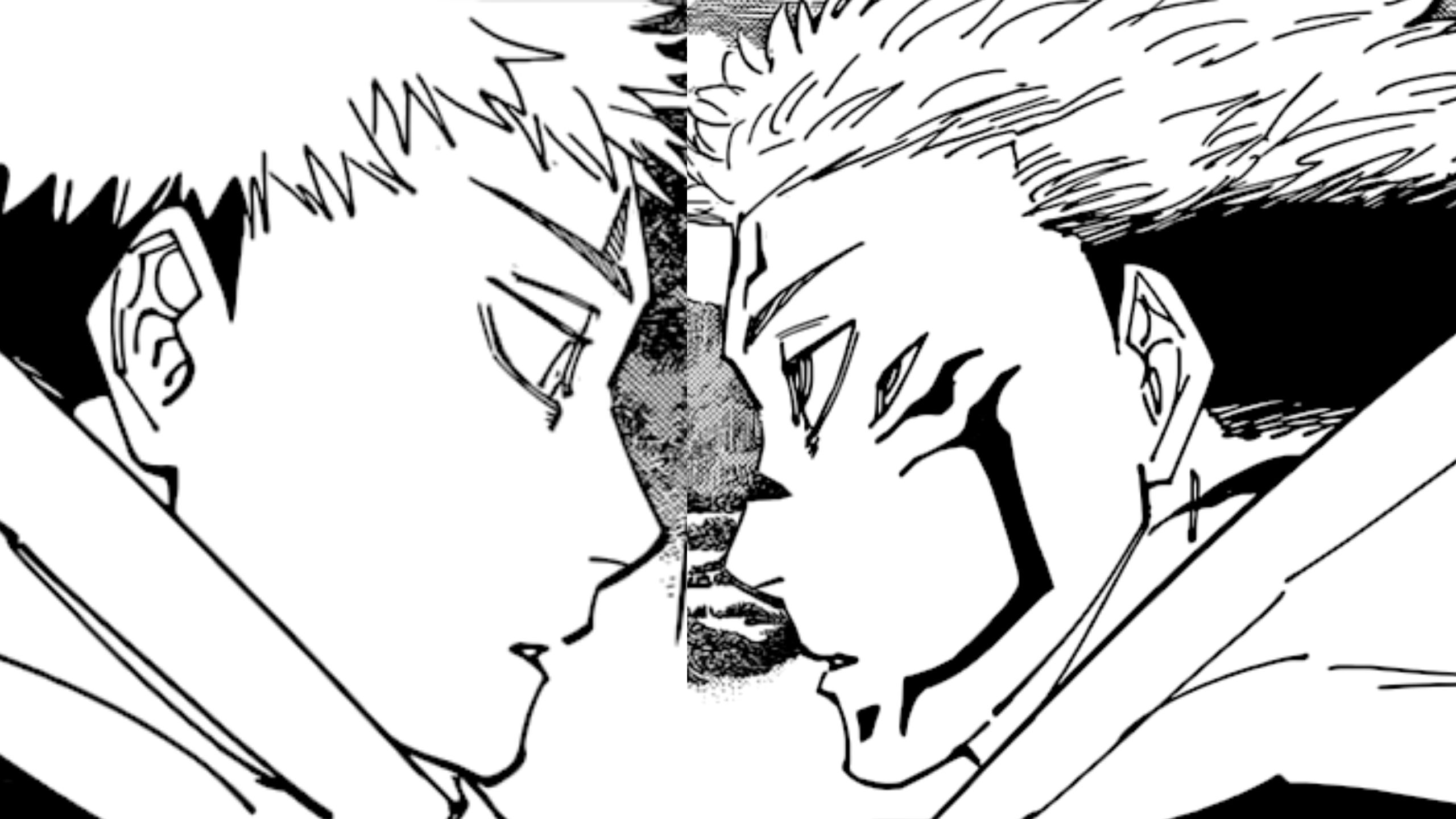
The balance between action and narrative depth is a delicate one, and in the case of Sukuna’s backstory, it appears that the emphasis on action has come at the expense of a deeper exploration of his character.
This is not uncommon in long-running manga series, where the demands of pacing and reader engagement can sometimes lead to certain story elements being abbreviated or left unresolved.
Despite this, it is worth noting that the story of Jujutsu Kaisen is not yet complete.
With three chapters remaining before the series reaches its ending in chapter 271, there is still the potential for a twist or revelation that could address some of the lingering questions about Sukuna’s past.
Gege Akutami is known for his ability to subvert expectations and introduce plot twists that recontextualize previous events.
It is possible that the final chapters of the series could include a revelation or a foreshadowing of future developments that tie back to the Heian Era and Sukuna’s history.
Possibility of Future Exploration
Given the significance of Sukuna’s character and the historical context of the Heian Era, it seems unlikely that Gege Akutami would completely abandon these plot points without any resolution.
While the current storyline may not have fully explored Sukuna’s past, there are several avenues through which this narrative thread could be revisited in the future.
One possibility is that Gege Akutami has deliberately left the Heian Era storyline open-ended to be explored in a potential spin-off or sequel.
The popularity of Jujutsu Kaisen and the depth of its world make it a strong candidate for expanded media, including spin-offs that go into different periods or characters within the Jujutsu universe.
A series focused on the Heian Era could provide the detailed exploration of Sukuna’s backstory that fans have been hoping for, offering insights into the origins of cursed techniques, the power dynamics of the time, and the events that led to Sukuna’s eventual downfall.
Another possibility is that the Heian Era and Sukuna’s backstory could be explored in a future arc within the main series itself.
While chapter 268 ended with Sukuna’s story in the present timeline, there is always the potential for a future arc that revisits the past, perhaps through flashbacks or time travel elements.
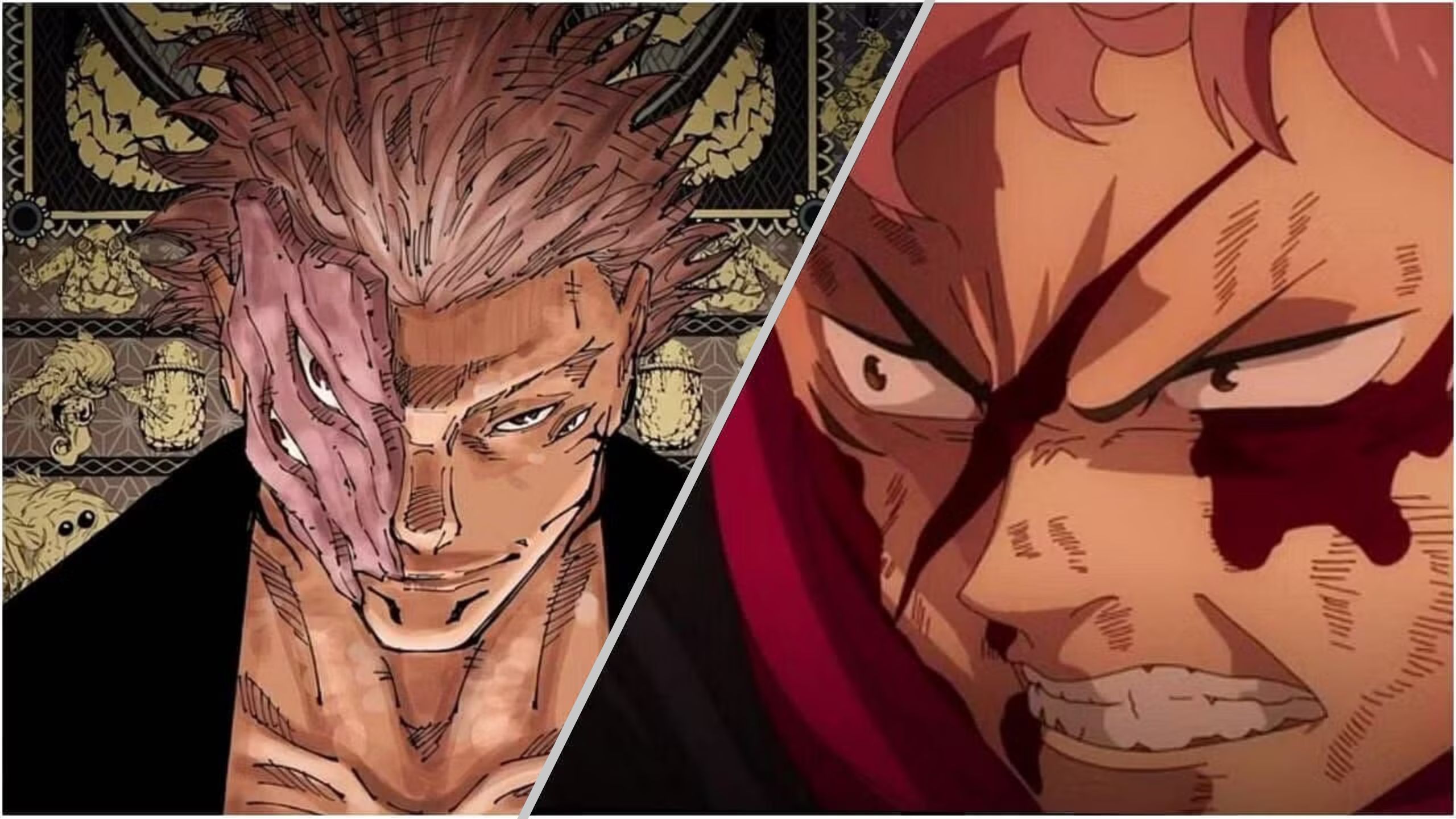
This would allow Gege Akutami to fill in the gaps in Sukuna’s history while also providing a fresh perspective on the current events of the series.
Finally, it is possible that the unanswered questions about Sukuna’s past are intentional, designed to leave fans with a sense of mystery and intrigue.
Not every story needs to be fully explained, and sometimes the allure of the unknown can be more powerful than a detailed exposition.
By leaving certain aspects of Sukuna’s character unexplored, Gege Akutami may be encouraging fans to engage in their own theorizing and interpretation, adding to the richness of the Jujutsu Kaisen universe.
A Mixed Legacy for Sukuna
As Jujutsu Kaisen approaches its final chapters, the legacy of Sukuna as a character remains a topic of debate among fans.
On one hand, his role as a powerful and fearsome antagonist has been undeniably impactful, shaping the course of the series and providing some of its most memorable moments.
His defeat at the hands of Yuji Itadori marks the culmination of a long and arduous journey, both for the characters within the story and for the readers who have followed them.
On the other hand, the unresolved elements of Sukuna’s backstory, particularly those related to the He
ian Era and his connection with Angel, have left a lingering sense of dissatisfaction.
The potential for a deeper exploration of his character, his motivations, and the historical context that shaped him has not been fully realized, leading some to feel that Sukuna’s end was ultimately unfulfilling.
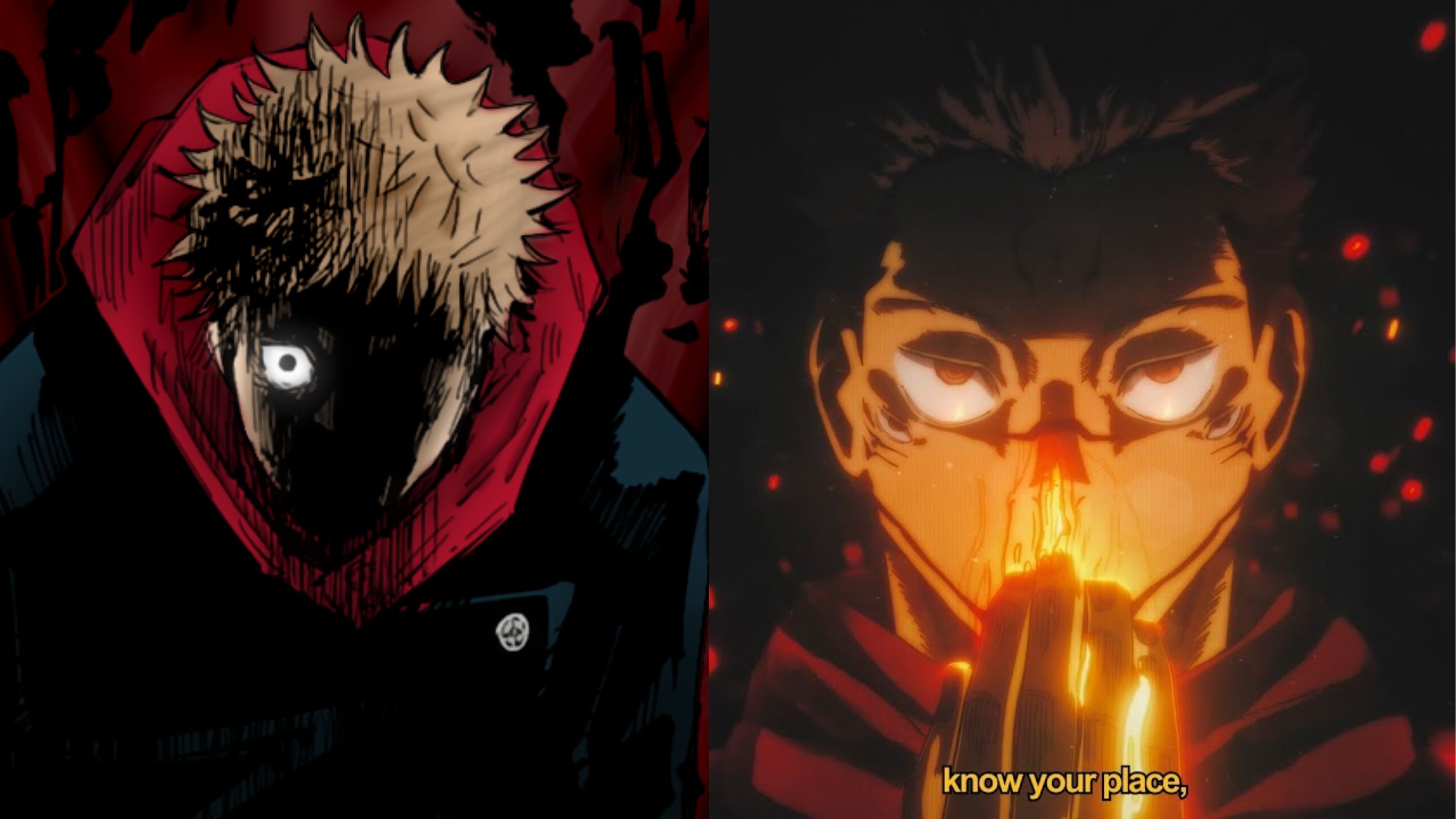
Despite these criticisms, it is important to recognize that the story of Jujutsu Kaisen is not yet complete, and there may still be surprises in store in the final chapters.
Whether or not the Heian Era storyline is revisited, Sukuna’s impact on the series is undeniable, and his legacy as one of the most compelling villains in recent manga history is secure.
In the end, the true measure of Sukuna’s character may lie not in the details of his backstory, but in the lasting impression he leaves on the world of Jujutsu Kaisen.
Whether through his terrifying presence, his complex relationships with other characters, or the mystery that continues to surround him, Sukuna will remain a central figure in the series, long after his story has ended.

